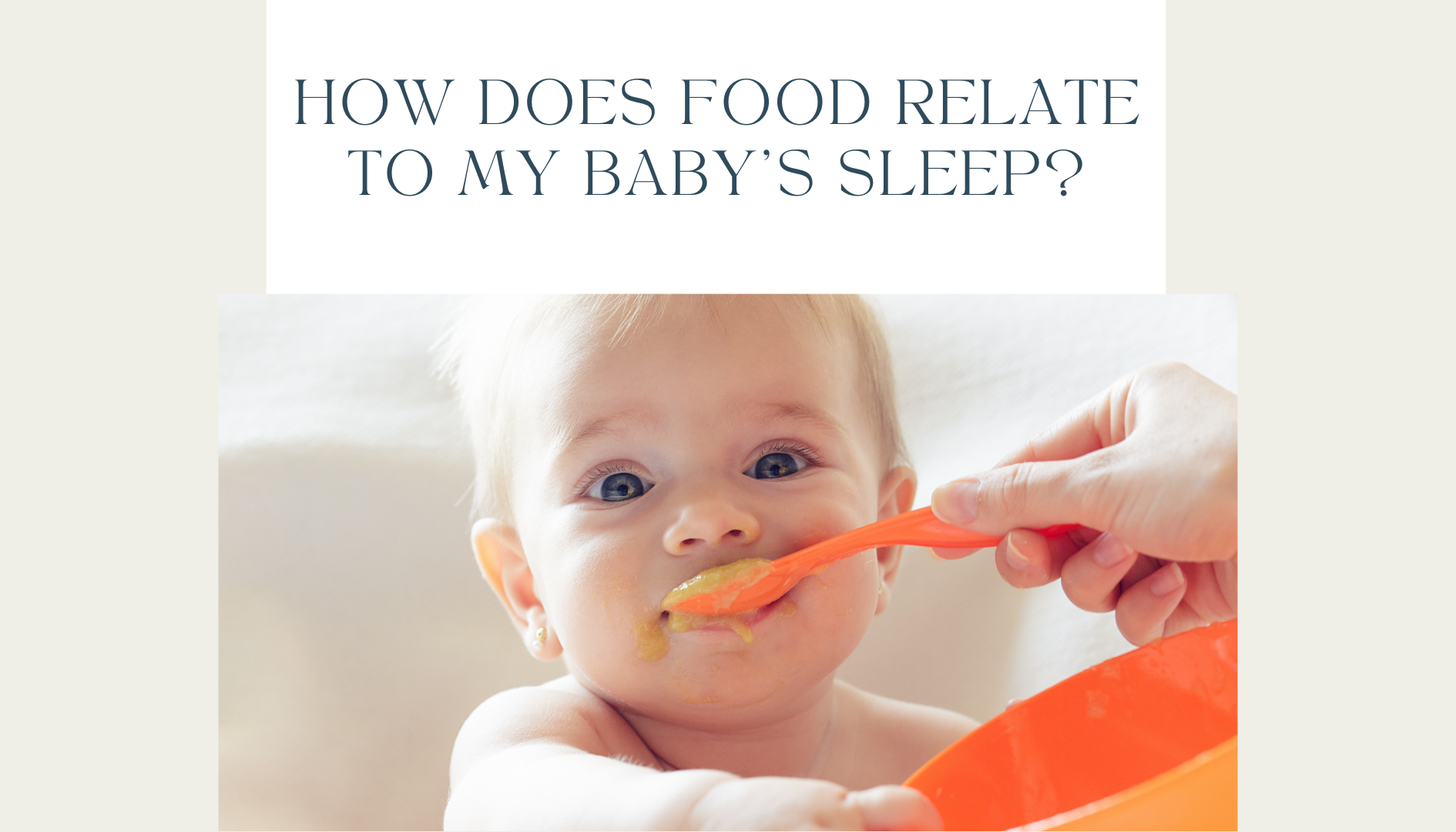
The impact food can have on sleep is something that most sleep consultants will be asked about a lot. Unfortunately changing your child’s dinner will not resolve any sleep disruptions, however, it is important to take this into consideration.
To put into perspective, when you travel abroad the majority of the time your appetite will change until your body has caught up to the local time zone, this is because our body is controlled and influenced by the circadian rhythm. When you feed your baby at the same time every day your baby’s stomach will begin to set into this routine and expect to be filled at that time. If both eating and sleeping habits are chaotic throughout the day, it could be enough to affect bedtime.
Your baby will need balance between not being on a strict schedule but keeping times approximately similar every day. A good goal to set will be a 30 minute difference between meal times each day, this is enough to allow for spontaneity.
As most of us can agree, the feeling of fullness after a big meal can cause us to become sleepy. This is caused by eating high glycemic index foods the body is required to release insulin to get blood sugar levels back to the correct level, and results in the brain releasing tryptophan, triggering sleepiness.
Eating will also increase your babies metabolic rate to allow the body to digest the food consumed, this process increases your babies core temperature and this can increase alertness in your baby. Not only this, when your baby is asleep the increase in core temperature combined with increased metabolic rate causes more brain activity during REM sleep and can result in vivid dreams or nightmares.
Going to sleep hungry can have just as bad effects. When a child is hungry their brains become more alert and so they are unable to go into a deep sleep. Your child’s body continuously uses energy in order to do so, they require constant metabolism, and much more. Depriving the body of the required calories before bed is likely to end in their bodies going to survival mode.
An obvious factor in this matter is that sugary foods will cause hyperactivity. If your child consumes sugary foods their body will release insulin to regulate the blood sugar.
Other things to consider are allergenic foods. Whilst food allergies can cause many side effects, it can also increase levels of histamine, this is strongly linked to the circadian rhythm, which is related to your child’s wakefulness.
Foods containing stimulant substances such as high sugars, fats or even caffeine which can be found in chocolate are also a bad choice to give your child at bedtime.
Here is a list of things you can do to help ensure a good night’s sleep for your baby.
If you require more help and advice on ways to improve your babies sleep patterns then contact me today, I will be more than happy to help. Alternatively, view my sleep services to view my different sleep packages.